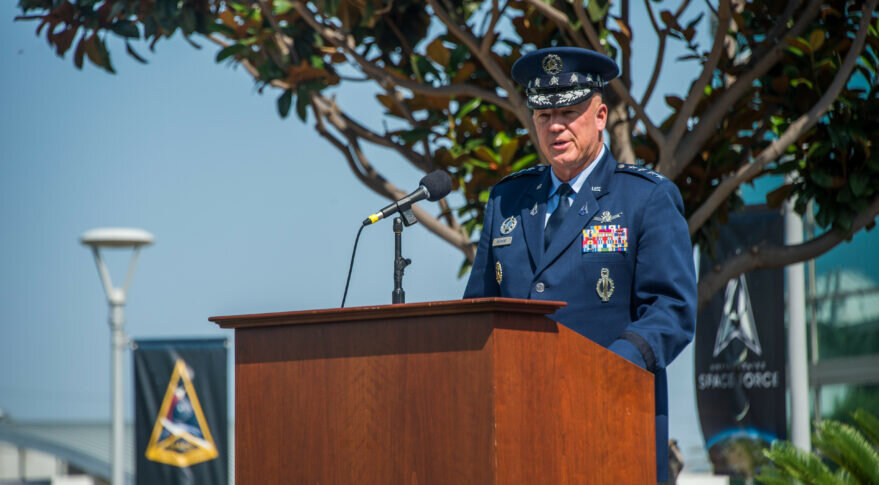In an already bloated military defense budget, the House Committee on Armed Forces recently marked up the National Defense Authorization Act for 2022 (NDAA) with another $24 billion to fund another major expansion of the U.S. armed forces through the establishment of the Space National Guard.
Intended to be the reserve component of the Space Force, the branch of the Armed Forces created under Trump, the concept of reserves is a strange one given that, at just under 5,000 active duty personnel, there are very few Space Force members at all.
Its inclusion into the NDAA took merely three days, from when Representatives Doug Lamborn (R – CO) and Jason Crow (D – CO) announced their intention to introduce an amendment to avail it.
Before the Space National Guard the budget request was $715 billion, its inclusion raises the figure to $739 billion.
The Committee voted 57-2, with the Chairman one of those in opposition. There’s still a fight with the Senate looming, as the Senate Committee included nothing about the Space National Guard.
“The committee notes with increasing alarm the rate at which our near-peer rivals are rapidly enhancing their own space capabilities with a view to challenging American space dominance and nullifying the capabilities and services of our space assets,” the bill reads.
The Committee is ‘interested’ in: “the pace at which new capabilities and technologies which will solidify American space dominance are developed and procured. There is also significant interest in ensuring the U.S. maintains freedom of movement and action on the moon and in lunar and cislunar space”.
There’s only one near-peer rival in space, and it’s China, and there’s only one near-peer competitor that regularly traffics lunar space and cislunar space, and it’s China. It’s a worrying turn, as communication or cooperation of any kind with China simply doesn’t happen.
“This [cooperation] isn’t going to be a situation where you have a bunch of smart people design in California and send the production to China,” Greg Autry, a professor in space policy and business at Thunderbird University, and Trump’s first nomination to CFO of NASA, told WaL. “NASA is prohibited by law from working with the Chinese. There can be no communications between a NASA person and a Chinese national”.
“The Biden Administration has continued a very hard line on China, and specifically Senator [Bill] Nelson who’s the NASA Administrator was asked… if he would adjust and work more with the Chinese and he said he wanted ‘no movement on that,’” Autry added.
Furthermore, NASA has already stated they have no plans to exchange Lunar regolith samples with the Chinese who recently brought them back from their hugely successful Chang’e-5 Lunar mission. It all seems to be heading away from cooperation in space as the two nations advance their commercial and government space sectors.
On that front, the NDAA prohibits the Space Force and the Space National Guard from developing in-house procurement unless it’s determined a commercial private sector alternative can not provide it.
“I want to be able to leverage them [U.S. commercial space sector] to build more resilient space capabilities,” said Chief of Space Operations at the Space Force, Gen. John Raymond in a late-August interview with Space News.
“The Space Systems Command already has an office that procures commercial satellite communications. We are expanding the role of that office to look not only at commercial SATCOM but look at commercial services more broadly… in a way that allows commercial companies to have more of an active role in building those capabilities,” he added.
With the checkbooks out, it’s going to be all hands on deck in the space sector to see who is going to win those government contracts, and at least from this direction the military budget will get no smaller. For example, Amazon’s space wing, Blue Origin, nabbed a share, along with SpaceX, of a $1 billion contract for the former’s Vulcan rocket and the latter’s Falcon-9 and Falcon Heavy, to handle all the Air Force’s satellite launches for the next five years. WaL
PICTURED ABOVE: U.S. Space Force Gen. John ” Raymond. PC: U.S. Space Force.
If you think the stories you’ve just read were worth a few dollars, consider donating here to our modest $500-a-year administration costs.



